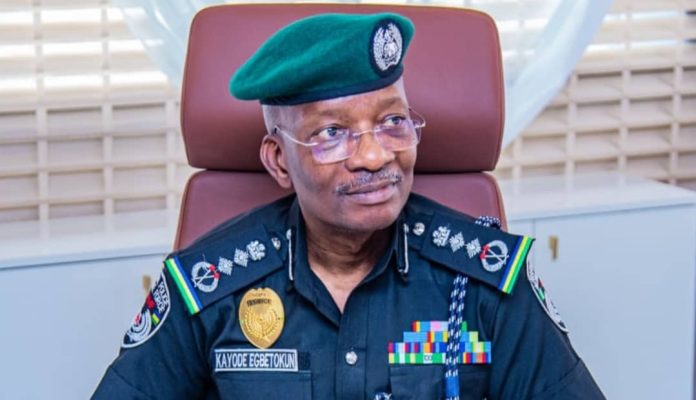THE Inspector-General (I-G) of Police, Mr Kayode Egbetokun, has urged a united national effort to tackle insecurity through stronger collaboration between security agencies and academic institutions.
He made the call yesterday at the third edition of the Annual Security Summit 2025, organised by Lagos State University of Education (LASUED), Ijanikin, Lagos. The summit had its theme as, “Strengthening the Partnership between Town and Gown in the Age of Insecurity.”
Egbetokun stated that the time had come for Nigerians to view security not merely as the duty of the police but as a shared responsibility rooted in civic values, education, and moral discipline.
I-G commended LASUED for what he described as “awakening,” noting that the summit demonstrated the university’s commitment to using education as a tool for peacebuilding and national renewal.
Explaining the essence of the Town-Gown Partnership, Egbetokun, described it as a “total approach” to security reform, uniting communities (“the town”) and academic institutions (“the gown”) in pursuit of peace and development.
“When the teacher and the officer walk together, crime loses shelter. “When ideas and enforcement work together, peace begins to take shape. Nigeria’s future will not be secured by guns, but by brains and moral discipline,” he said.
The police boss urged universities to focus on applied research that would support data-driven policing, community dialogue, and public trust-building in order to strengthen law enforcement and social cohesion.
Egbetokun outlined five pillars for effective collaboration between the police and academia.
According to him, these include, data-driven policing, youth behavioural studies, cybersecurity and digital ethics, community conflict management, and public trust evaluation.
He explained that these initiatives would help predict and prevent crime, promote responsible citizenship, and rebuild confidence between citizens and the police.
Addressing Nigeria’s evolving security landscape, the police chief warned that the country was now facing threats that were faster, smarter, and harder to detect, including cybercrime, misinformation, and digital manipulation.
He observed that a single keystroke could inflict more damage than a bullet, and that a viral post could ignite violence faster than a match could light a flame.
According to him, the Nigeria Police Force is undergoing a “profound transformation,” shifting from a reactive force to a proactive, intelligence-led, and technology-driven institution.
He said that the reforms included expanding cybercrime units, modernising forensic laboratories, and improving training in data analytics and drone surveillance.
However, he cautioned that technology alone could not sustain peace, stressing that “algorithms did not inspire communities, real security was born out of relationships.”
Egbetokun also described misinformation as a growing national security threat, calling fake news “a silent bomb” capable of destroying public trust faster than any weapon.
“Misinformation is not to be fought with censorship, but with civic education, digital literacy, and transparency,” he said.
“When knowledge stands guard, ignorance retreats. When communities unite, criminals scatter. And when truth takes the microphone, falsehood loses its audience, ” he said.
He urged scholars, officers, and citizens to rise together to build a Nigeria where “the pen and the uniform stand side by side, defending one flag, one faith, and one future.”
In her opening speech, the Vice Chancellor of Lagos State University of Education (LASUED), Prof. Bidemi Okuneye, stated that the summit sought to shift from episodic cooperation to institutionalised collaboration, with a focus on prevention, accountability, and community partnership.


